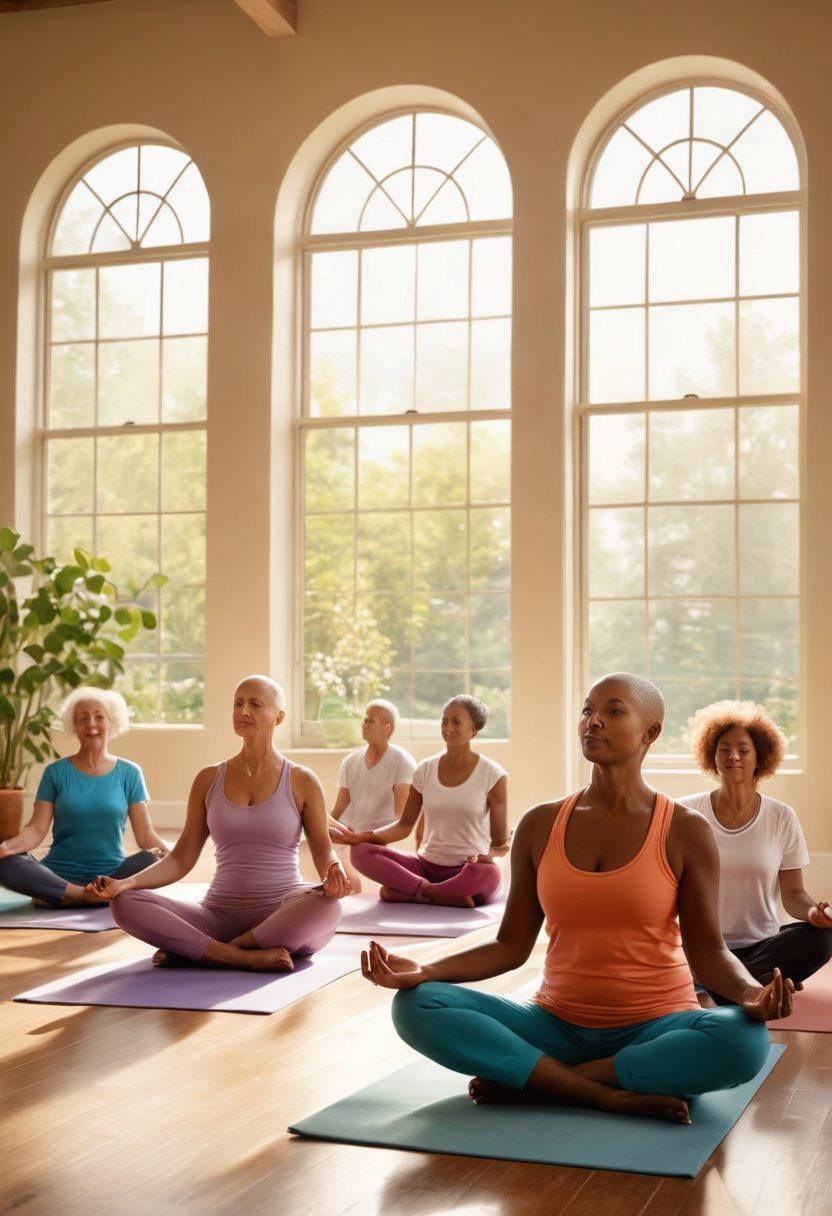Empowering Cancer Patients: Insights, Treatment Options, and Wellness Strategies
Navigating the journey of cancer treatment and survivorship can feel like sailing through uncharted waters. It's filled with uncertainty, complexities, and often a whirlwind of emotions. As you begin to unravel the vast landscape of oncology, it’s essential to equip yourself with valuable insights. In this blog, we will explore crucial aspects of cancer treatment options, wellness strategies, and the importance of community support that can empower patients and survivors alike. So, let’s embark on this journey together!
Understanding the various cancer treatment options is akin to assembling a puzzle where every piece plays a critical role in the larger picture. From chemotherapy to radiation, and even alternative treatments, each avenue has its unique benefits and challenges. How can you discern which option is best for you? Engaging in robust disease research is vital, alongside consultations with your oncologist. They often provide invaluable patient education and insights into the latest treatment advancements that could aid in your specific situation. Armed with knowledge, you can make informed decisions that align with your health goals.
One of the most powerful tools in the cancer community is the sharing of survivorship stories. When you hear a survivor proclaim, "I fought, and I won!", it can ignite a fire of hope within you. These narratives not only provide relatable experiences but also highlight wellness strategies that have worked for others. Have you ever thought about how powerful it is to simply share your story or hear someone else's? It fosters deep connections and provides psychosocial support that is crucial during difficult times. Joining patient support groups allows for these exchanges, cultivating an environment of understanding and camaraderie.
Health and wellness go hand in hand, particularly when you're navigating the cancer treatment landscape. While medical treatments target the disease, incorporating holistic health practices can nurture your mind and body. Explore yoga, mindfulness meditation, or nutritional guidance tailored for cancer patients—these health tips can enhance your resilience and overall well-being. Have you taken a moment to consider how these strategies could elevate your health journey? Remember, a proactive approach not only supports your physical health but also uplifts your emotional state.
As we cultivate awareness about cancer, advocacy and education become our shared responsibilities. Together, we can enhance support for cancer patients, promote cancer prevention, and encourage participation in oncology research. By empowering one another with knowledge and encouragement, we bolster a community committed to fighting cancer together. In what ways can you contribute to this mission? Whether it’s engaging in local advocacy efforts or simply sharing informative cancer articles within your network, every action counts. Let’s continue moving forward, championing health and happiness for all those affected by cancer.
Building a Strong Support Network: Empowering Patients Through Advocacy and Education
In the challenging journey of battling cancer, one of the most significant factors that can empower patients is a robust support network. Imagine navigating the turbulent waters of cancer treatment without a life raft—support systems serve as those essential lifebuoys. By accessing resources, connecting with others who understand their plight, and being educated about their options, cancer patients can reclaim their agency and lift their spirits even when faced with the harsh realities of a diagnosis. This blog is not just another oncology blog; it's a guide to building a strong support network that fosters empowerment through advocacy and education.
How often do we hear that community is strength? For cancer patients, this statement rings true more than ever. The emotional rollercoaster of cancer can hurl individuals into isolation, but patient support groups provide a much-needed haven. Participating in these groups not only allows patients to share their survivorship stories and experiences but also equips them with vital health tips for cancer. The simple act of listening and being heard can significantly enhance a patient's journey and ignite the power of collective wisdom. Isn't it incredible to think that the struggles of one person can educate and uplift another?
In thinking about cancer treatment options, education plays a pivotal role in empowerment. When patients are informed about their choices—be it traditional methods or alternative treatments—they can be proactive participants in their own care. Moreover, oncology research is continually unveiling new treatment advancements that can offer patients hope and better outcomes. But how can patients stay updated and advocate effectively for themselves amidst this ever-evolving landscape? Engaging with advocacy groups and educational resources can empower patients to harness knowledge, one of the best tools in their arsenal.
The intersection of health and wellness is particularly crucial for cancer patients. Holistic health approaches—incorporating physical, emotional, and spiritual support—can significantly enhance the quality of life during and post-treatment. Psychological support and wellness strategies, like mindfulness and meditation, are powerful allies on this journey. Have you ever tried to meditate in a moment of chaos? Such practices may help reduce stress and provide a sense of peace amidst uncertainty. The importance of psychosocial support cannot be overstated; it encourages open conversations about fears and aspirations, better bridging the gap between patients and healthcare professionals.
Finally, let’s not forget about the vital role that cancer awareness plays in not only prevention but also in fostering a community where support for cancer patients thrives. By educating the public, we promote understanding, compassion, and an enhanced support network for those affected by cancer. By engaging in conversations and sharing insights through cancer articles and personal experiences, we create waves of change that ripple through our societies. So, how can you contribute to this transformative journey? Start small—ignite discussions in your social circles, participate in awareness campaigns, or simply lend an ear to someone in need. Join us, and together, we can build a resilient cancer community that empowers every member through advocacy and education.
Exploring Holistic Health: Innovative Strategies for Cancer Care and Prevention
In an age where conventional medicine often dominates the conversation around cancer care, the importance of holistic health has started to shine through as a beacon of hope. Holistic health encompasses innovative strategies that address not only the physical aspects of cancer but also the emotional and psychological well-being of patients. This approach resonates deeply within the cancer community, as it creates a comprehensive framework for healing. What if the key to fighting cancer wasn’t just about treatments, but also about fostering emotional resilience and mental clarity?
When we think about cancer treatment options, it's easy to get lost in the specifics of chemotherapy, radiation, and surgery. However, the world of holistic health invites us to explore beyond these traditional methods. Imagine integrating mindfulness practices, nutrition, and alternative treatments into a patient’s routine. As cancer survivors often share, a supportive ecosystem can make all the difference. “It’s not just about surviving; it’s about thriving,” one survivor shared during a recent patient support group meeting. This perspective illustrates the heart of holistic cancer care, emphasizing that treatment can be tailored to nurture the entire person rather than just target the disease.
The significance of psychosocial support cannot be understated when discussing holistic health strategies. Studies in oncology research indicate that patients who engage in support for cancer patients—through group therapy or community gatherings—experience less anxiety and higher overall well-being. Why is that? Because shared experiences create bonds, and storytelling transforms fear into hope. Picture a circle of individuals exchanging their survivorship stories—every story a testament to resilience, every voice a reminder that none of us have to face these challenges alone. Such support not only cultivates bravery but also empowers individuals to share health tips for cancer that have worked for them, creating a cycle of learning and growth.
As we delve into discussions around cancer awareness, it's essential to consider how we can incorporate wellness strategies into everyday life. The questions we ask can often lead to transformative answers. What dietary changes can enhance one’s immune system? How can exercise become a joyful part of recovery rather than a chore? Exploring these inquiries allows for actionable steps toward cancer prevention that accumulate over time. Health and wellness should not feel like an uphill battle but rather an engaging journey of self-discovery and empowerment.
In conclusion, the landscape of cancer care is evolving, and with it, our understanding of what it means to provide comprehensive support for those navigating the complexities of the disease. By embracing holistic health, we create an environment that fosters not only better treatment advancements but also vibrant, thriving lives post-cancer. It’s a call for cancer advocacy that resonates loudly: let us stand together to ensure that every person has access to the resources they need for a full spectrum of health, wellness, and support. After all, it’s the combined heart of a community that strengthens the fight against cancer.


